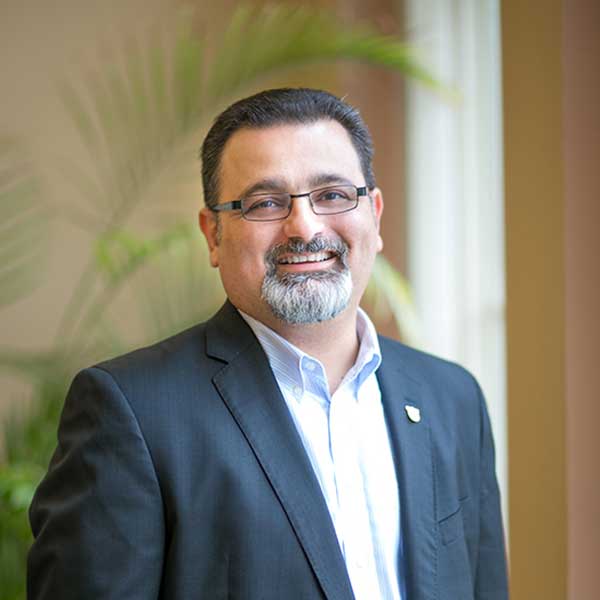
It’s not often that a university president will cite a pop song from the 90s to describe how small private colleges must transform to serve students, but Dr. Melik Peter Khoury at Unity College in Maine has done it:
“Free your mind, and the rest will follow,” he says, quoting the lyric from the R&B group En Vogue, while adding a verse of his own: “Respect your history, but don’t get shackled by it.”
Khoury says higher education must be a “hotbed for innovation,” where creative solutions are allowed to flourish. But often, struggling institutions that should be open to new ideas instead fall back on traditional and comfortable models and mission statements.
“We should be at the forefront of change,” Khoury says. “And instead, we resort to familiar strategies like committee decision-making to garner support when we should be speaking with subject matter experts and the people affected, taking that information, and then making the hard decisions that allow for truly creative solutions”
This self-proclaimed “America’s Environmental College,” once exclusively a place for location-bound hands-on learning experiences, is now meeting students with an array of options: hybrid and fully remote courses, plus associate’s degrees and certificate paths delivered through a new technical institute. Unity has become more affordable and more flexible. Its student body has grown from 900 to 1,600 in just over a year.
“Most struggling institutions, their mission is not the issue,” Khoury says. “Look at the changing demographics. Figure out how you are offering your curriculum, how accessible it is, how affordable it is. Break free from the idea that there is only one way to deliver an education.”
Embracing change, remaining relevant
A few years ago, Khoury began to re-evaluate Unity’s approach that relied solely on the residential experience. That model – a pricy, hands-on education for 17-to-24-year-olds – made sense decades ago, but changing demographics and student needs have exposed its limitations. So, Unity began investing in technology while expanding its pool of students. Among its innovations was a shift to hybrid learning, an unusual strategy for an environmental college. The decision helped Unity absorb some of the impact of the pandemic, though some haven’t been enamored with the direction. Without it, though, Unity might be in a far more negative position today. In a one-on-one conversation with University Business, Khoury discussed four key areas that small colleges should be looking at closely:
In-person vs. remote vs. hybrid. “I do not believe that the future of higher education is online. But I also don’t believe that the future of higher education is all-year residential. I think we have confounded the concept of online to mean not four-year residential. I would argue my residential campus has been online for 10 years. We are basically saying the only real education is four-year residential, otherwise, you are not really a student. And that is the lexicon that needs to change. Most of us have built our business model on tuition, room and board, and we are not willing to say that out loud.”
Smart budgeting. “We changed our business model. We don’t start with spending. We start with revenue. My faculty don’t report to the CAO. My faculty report to the highest-ranking officer within the sustainable educational business units and they’re all differentiated in how they approach it. We were able to lower our costs by 20% by simply changing the compensation model for faculty members. If we all stop trying to build models that look like Harvard and Bowdoin, I think we will survive. I love them, but until I get the billion-dollar gift, I’ve got to stop wishing for it.”
Traditional vs. new approach. “Free yourself from tradition. Put your students at the forefront of your decision-making. We are all built with governance structures and budget as if we are heavily endowed or heavily subsidized, not as if we need to create value. When some complain that putting students first is somehow reducing academic quality or rigor, that is a red herring designed to stop a conversation in its tracks. A transfer, an adult, a first-generation American can have different needs. Do not assume that scholarships fix it all.”
Different institutions, different ideals: “We are still looking at higher education as a singular entity. I think we need big state schools. I think the elites will always be there because they gauge their enrollments based on their endowments, and they’re not really about scalability, they’re about exclusivity. Our graduation rates in this country are abysmal. We have an obligation in the 1965 Higher Education Act, and we at Unity College are working, to become a model that gives courage to those colleges choosing to change rather than close.”







